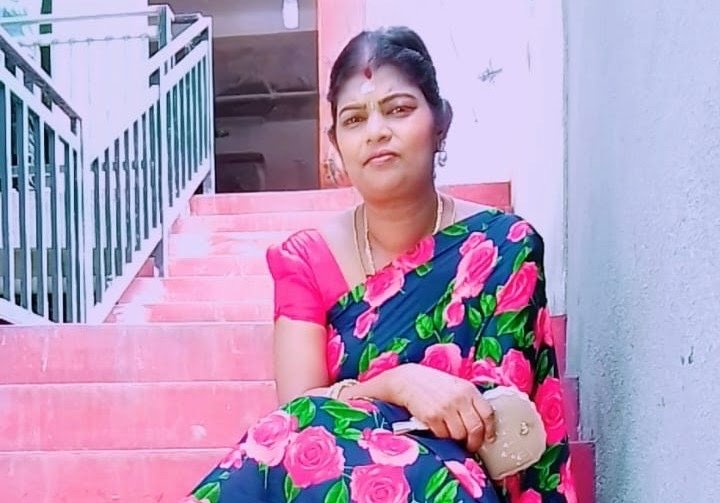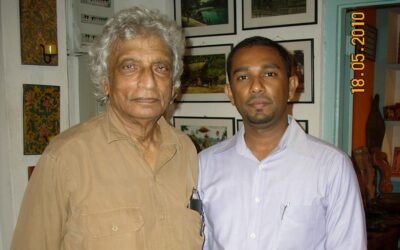Dying for the Target
Ishankha Singha Arachchi
The harsh working conditions faced by workers in the pursuit of ever-intensifying production targets have long been a recurring issue in the garment industry. In such extreme conditions, workers are forced to meet unreasonable demands for orders despite illness or mental stress.
Although the International Labour Organization (ILO) has established international standards on workplace safety and health (C155 and C187), and on forced labour (C29) that have been recognised by its members including Sri Lanka as fundamental rights at work, their practical implementation remains minimal. According to Deputy Minister of Labour Mahinda Jayasinghe, approximately 2,000 non-fatal accidents and 60–80 fatal accidents occur annually in workplaces in Sri Lanka.
This reality is tragically highlighted by the recent death of a woman worker. Paramasivam Pushpalatha of Brandix Fast Fashion in the Seethawaka export processing zone near Avissawella, died on 10 October. She had become ill while working on the production line at the factory, but was denied timely medical attention, due to management pressure to meet the target for an order.
Pushpalatha, 44, was from the new generation of Malaiyaha Tamils looking for jobs outside the tea and rubber estates. She was a mother of two young sons, living in Kiriporuwa Estate in Yatiyantota in Kegalle district, with her husband and elderly mother. She had joined the Brandix factory in Seethawakapura 13 years ago.
Pushpalatha was known to everyone in the workplace as a hardworking and motivated person who met the production targets assigned to her on time and as scheduled. She would wake at 5.30 am to leave for Avissawella, which is about an hour away from her home, to begin work at 7 am. She was usually responsible for two machines, until clocking off after 5 pm.
“Ill but had to meet the target”
“On 10 October, I received a message through my mother-in-law that Pushpalatha had become ill and was admitted to the Avissawella hospital. She was not someone who falls sick easily. She was a very healthy person”, recalls her husband Sivakumar, a month after her sudden death.
“That morning, around 9 am, she complained to her line supervisor of a headache, dizziness and chest pain, and asked for the day off. This was refused as she was told she had to meet her target. She was not even allowed to take rest. Only later, around 11 am, she was told she could go to the sick room for a short break. But before long she had to return to the production line to finish her target. Despite being sick and in pain, she was forced to work. It was while she was working that she passed out around 5 pm.”
Pushpalatha, who was unwell throughout her shift, was repeatedly denied sick leave and forced to continue working until she collapsed on the job. She was finally admitted to Avissawella district general hospital around 6.15 pm, over an hour after she lost consciousness at her workplace. The distance between the factory and the hospital is only around 2 km or 10 minutes by vehicle.
“The doctors worked tirelessly to save Pushpalatha. One of the female doctors told me that if she had been brought in earlier, she could have survived. She passed away around 11 pm”, says her grieving husband, Sivakumar.
Later, the Judicial Medical Officer (JMO) examined her body. “As soon as she saw Pushpalatha, she said, ‘She was not someone who needed even a single Panadol pill from the factory. Pushpalatha was very strong.’ I was surprised when the JMO said that she knew Pushpalatha; and also mentioned that she herself worked at the Brandix factory. I could not think straight. She asked if there was anything suspicious about the doctors who treated her at the hospital or at the company, but I had no answers. She told me, ‘You can only bury her, not cremate. Come back after five days for the death certificate’”, Sivakumar recalls.
Factory management remains silent
Pushpalatha’s funeral, held on 13 October at Kiriporuwa estate, drew a large crowd paying their last respects. Yet, the absence of her colleagues—those who worked alongside her on the production line—left Sivakumar with a sense of unease. Adding to his suspicion was the presence of the supervisor who had denied Pushpalatha leave when she complained of being sick. The supervisor attended the funeral but left without speaking to Sivakumar and the other family members. This prompted him to investigate further.
“The workers on the line said that Pushpalatha died because she was forced to keep working while ill. This story reached the HR [human resources] office, and now her name is forbidden to be mentioned. No one talks about the incident because they need their jobs. Many are expecting a big bonus in December. Pushpalatha was looking forward to hers too. Her monthly salary was about 65,000 LKR a month, which covered all our family expenses”, said Sivakumar.
Sivakumar went back to meet the JMO and collect the death certificate on 17 October—a week after she passed away. “Pushpalatha died of pneumonia, according to the JMO’s report. Moreover, the JMO told me that according to her inquiries, it was Pushpalatha who refused to go to the hospital when the factory management tried to take her there for treatment that day. I could not believe her words. ‘Pneumonia does not develop overnight’, I said to her. The JMO became silent after that, and said the death certificate might be delayed.”
It was not the JMO but another official in her office who informed him that investigations into Pushpalatha’s death were being conducted by the Avissawella hospital and the death certificate could be collected there. With this information, Sivakumar made his own inquiries. He was shocked to discover that Pushpalatha had been admitted to the hospital under his name. But at that time, he was on the estate and unaware of his wife’s condition.
“The factory management contacted us only after Pushpalatha was admitted to the hospital. But my name and address had been used to get her admitted. The factory management did this to cover up what had happened. Something is clearly wrong”, he insists.
Two days later, on 19 October, Sivakumar filed a complaint at the Avissawella police station regarding Pushpalatha’s death. His complaint identified the supervisor who had denied his wife sick leave and forced her to continue working despite her illness.
“If we had been informed of the seriousness of her condition before her hospitalisation, we would have gone into debt, sold a kidney, or taken her to a private hospital. For the police, this is just a single complaint. My two children and I are completely helpless,” Sivakumar said, wiping away his tears.
Swasthika Arulingam, president of the Commercial and Industrial Workers Union that has taken up Pushpalatha’s case, queried how this particular JMO was the right person to investigate the cause of death and prepare the death certificate. “How reasonable is it for a doctor associated with the factory to conduct the post-mortem examination of a worker from that same factory? There is a clear conflict of interest.” Arulingam emphasised that Pushpalatha’s death was preventable if timely and proper care had been given.
She also highlighted that during the COVID19 pandemic, Brandix had pushed female employees to meet production targets, further endangering their health. “Even though they created a COVID cluster, shut down the country, and slowed down the economy, nothing happened to them. This institution wields more power than the government”, added Arulingam who is also a lawyer.
Complaint to the Human Rights Commission
The Commercial and Industrial Workers Union (CIWU), the Free Trade Zones and General Services Employees Union (FTZGSEU), and the Ceylon Mercantile, Industrial and General Workers Union (CMU) have jointly filed a complaint with the Human Rights Commission (HRCSL) seeking justice for Pushpalatha’s death.
“The HRCSL typically investigates incidents in government institutions. This is the first time a complaint has been filed regarding labour issues in the private sector. This is also the first known case where a worker has died after being forced to meet production targets”, said Arulingam. An inquiry into the tragedy was conducted by the HRCSL on 7 November.
According to the FTZGSEU, the responsibility for Pushpalatha’s death extends beyond the Brandix company to include the government, the Board of Investment (BOI), the health services, and the Department of Labour (DoL). Despite a month passing since her death, no proper action has been taken by any of these authorities, says the union.
“Chasing production targets is a serious issue in the Free Trade Zones (FTZs). Now, a life has been lost because of it. Workers are afraid to speak up. Workers have been prevented by Brandix from unionising in its Nivitigala [in Ratnapura] factory. Any attempt by workers to form or join a trade union is being suppressed” said Krishanthi Mangala, president of the FTZGSEU.
Many workers employed in the factories within the Avissawella FTZ are from the Malaiyaha Tamil community, and their primary language is Tamil. This has given rise to a range of problems. “The language barrier has become a serious issue, as workers cannot properly discuss concerns or express their ideas. Even basic notices and advertisements are not provided in Tamil.” said Mangala; who also emphasised that the hardships and injustices faced by workers and their families cannot be resolved simply by making monetary compensation.
Garment factories such as Brandix clamp down on trade union activity, claiming that their workers are treated better than those in other garment factories. Their union busting undermines the rights of workers; even though in Sri Lanka forming and joining a trade union is a constitutional and statutory right, which applies in export production sectors too.
“Factories in the Brandix Apparel group do not have trade unions, which leaves workers with little recourse when problems arise. There is minimal concern for the health and safety of employees. Had there been active unions, many issues could have been resolved and settlements reached. The police and Labour Department have not intervened properly; they have covered up incidents, not even clarifying the cause of death”, said Roshan Fonseka, executive committee member of the CMU. He added that Pushpalatha’s death is a violation of both workers’ rights and human rights.
In recent months, several workers have lost their lives in industrial accidents. A 51-year-old prime mover operator at the Colombo Port International Container Terminal and a 35-year-old machine operator at the Yokohama factory in Sapugaskanda were killed in August. Already this month, 25-year-old Rajnikanth was killed in a machine explosion at the rubber processing factory in Kiriporuwa Estate (where Pushpalatha once lived); while Krishnan Vijayakumar, a 49-year-old worker at the Maussakelle factory in Maskeliya, had his head caught in a tea-rolling machine.
All workers should receive the right to health, safety, rest, and dignity in the workplace. Workers’ lives must not be sacrificed for production. No worker should die for the target.
Ishankha Singha Arachchi is an executive committee member of the Ceylon Mercantile, Industrial and General Workers Union (CMU), and a contributor to the Sunday Observer newspaper.
Image source: https://bit.ly/48qk2wW
You May Also Like…
Gananath Obeyesekere: The Anthropologist and the Historian
John D. Rogers
I first met Gananath at the Annual Conference of the Association for Asian Studies in Washington DC in March 1984,...
The Creation of the Hunter. The Vädda Presence in the Kandyan Kingdom: A Re-Examination. Gananath Obeyesekere. Colombo: Sailfish, 2022.
R. S. Perinbanayagam
Robert Siddharthan Perinbanayagam died on 5 November 2025 in New York City where he lived most of his life. Born in...
‘Guru-Ship’: An Epistemological Turn in My Anthropological Education
Sanmugeswaran Pathmanesan
This paper narrates the epistemological shift that took place in my anthropology learning journey, mapping how the...




